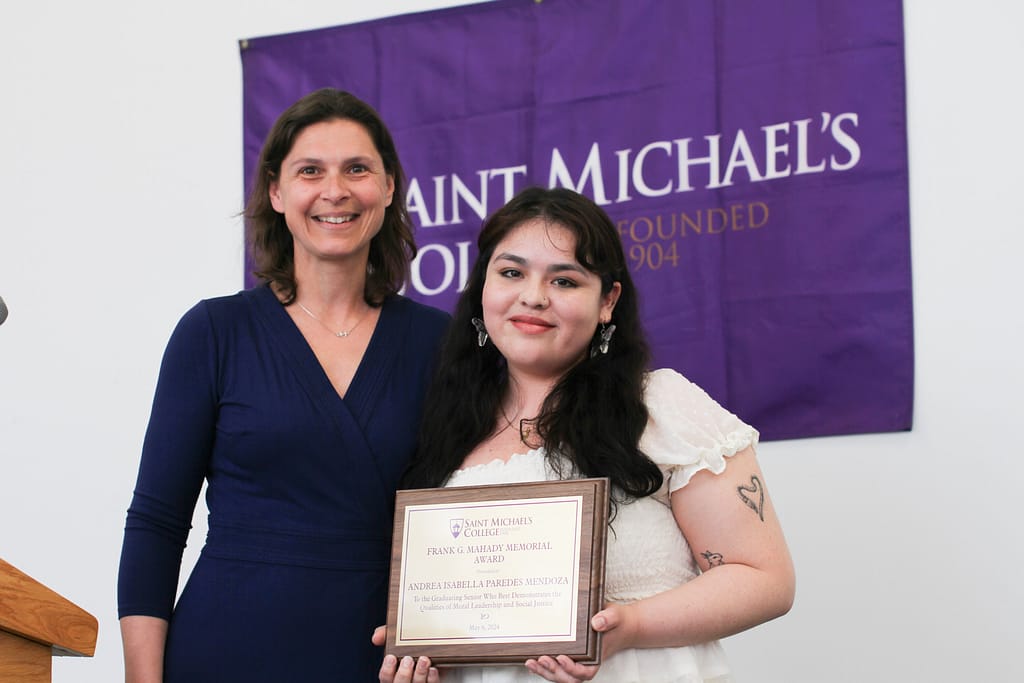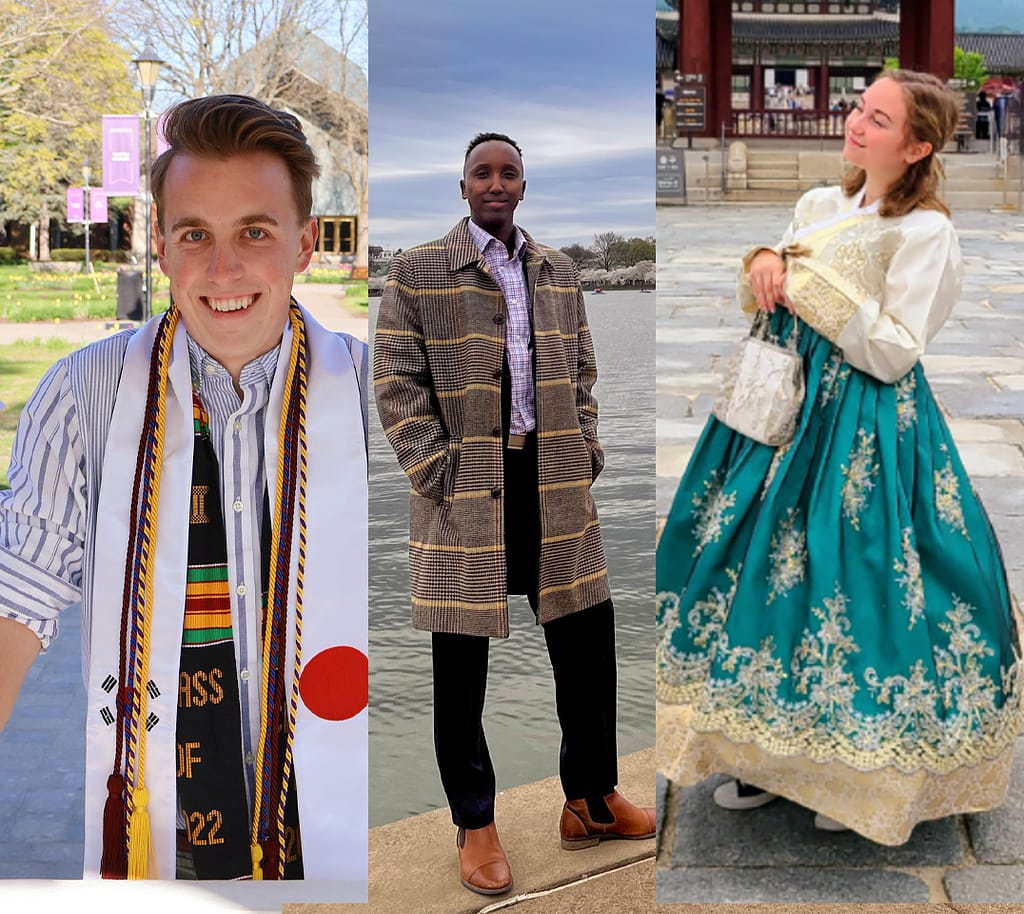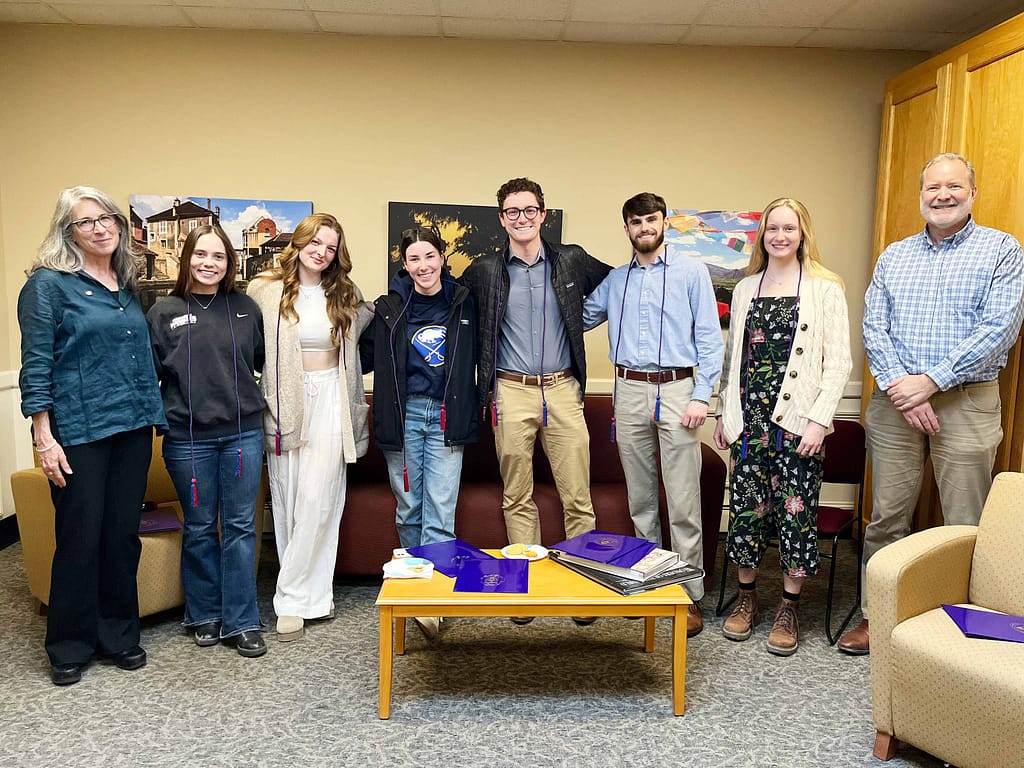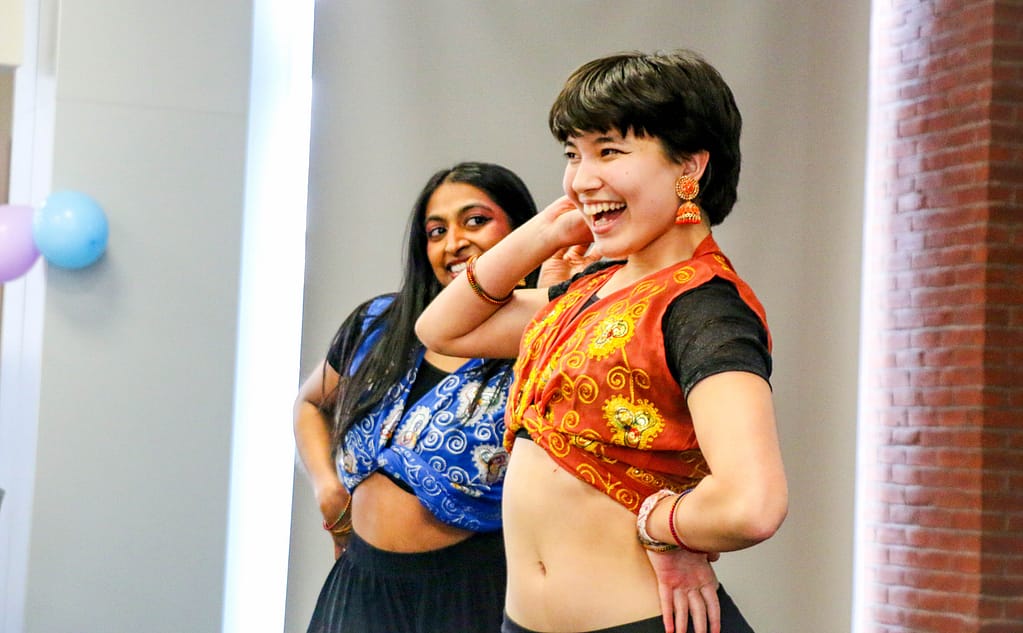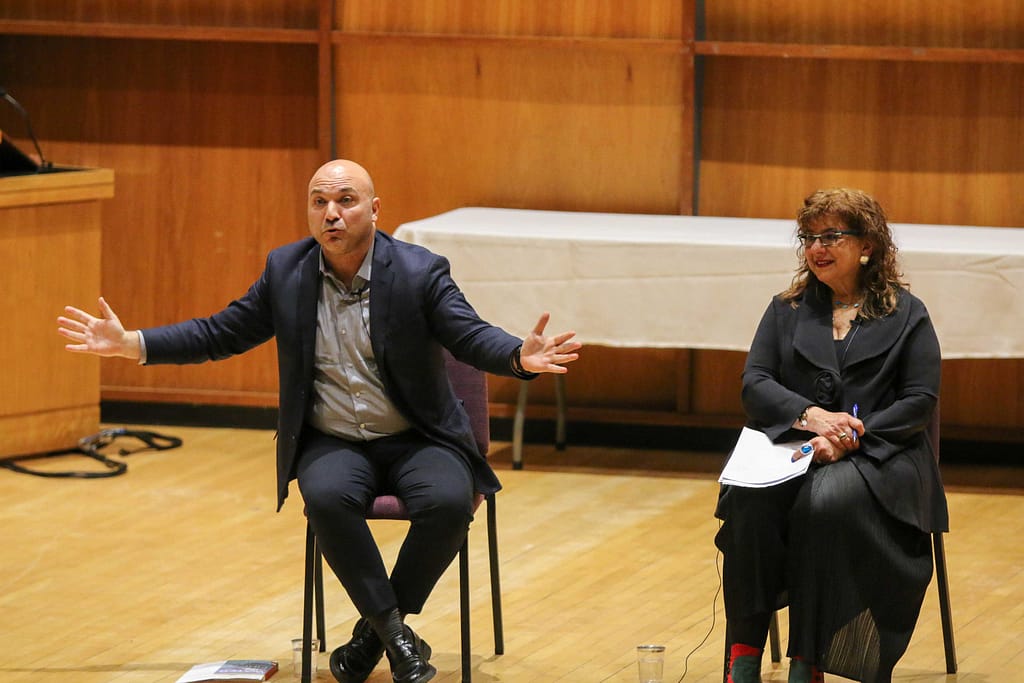Insights on MLK, community by Ghana native delight packed house in Roy Room
Professor Sefakor Komabu-Pomeyie shares her 'lens' as disabled woman of color on matters of social justice
In celebration of the 31st annual Martin Luther King Jr. Convocation at Saint Michael’s College, Sefakor Komabu-Pomeyie, Ph.D gave a presentation titled, “Claiming the Promise: Film and Discussion.” Komabu-Pomeyie’s presentation focused on her “lens” as a disabled woman of color, the power and utility found within community, and the importance of language and dialogue in the battle for social justice.
Nearly every seat in the Roy Room of the Dion Family Student Center was filled on Monday afternoon by curious students, faculty members, and community members eager to hear Komabu-Pomeyie’s presentation. Despite admitting her love of talking (and subsequent delight in having a room full of people to talk to), Komabu-Pomeyie instead began her presentation by asking the audience to speak. Above all else, she asked why the audience came to her presentation among the extensive list of Convocation speakers, and what they hoped to hear from her that day.
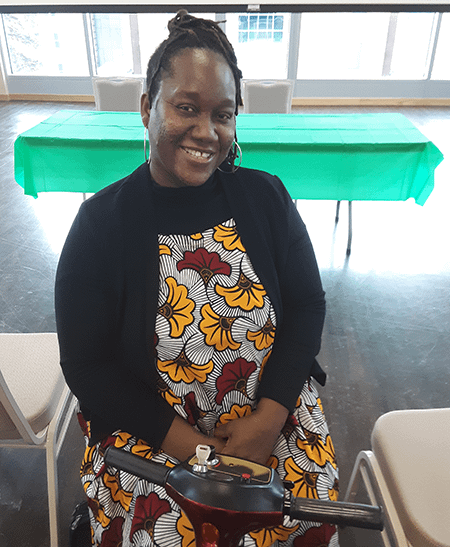
Sefakor Komabuy-Pomeyie in the Roy Room after her presentation Monday. (photo by Mark Tarnacki)
Answers varied, providing a segue for Komabu-Pomeyie to discuss the important differences between community-centered thinking and individualism. She said that in her home country of Ghana, everything is done as a community. If one person has a child, every person cares for that child as if that child were their own. Similarly, she said, Ghanaians always have a pot of food cooking for six or more people, even if they are not expecting company, because it is common (and expected) practice to have visitors at any time.
In America, however, the culture is extremely individualistic, Komabu-Pomeyie said. Contrasting her example of Ghanaian community members dropping in for visits, she playfully noted how strange it is that Americans make “appointments” to see their friends and family members. “In Ghana, no one will say, ‘can I come by at three today?’ They just come,” she said.
Unfamiliar information for many people in the room, Komabu-Pomeyie shared that in the early years of Martin Luther King Jr.’s civil rights efforts, he visited Ghana to participate in the country’s first independence day celebration. While there, he witnessed first-hand the community-oriented culture of which Komabu-Pomeyie spoke, and was able to “return to his roots.” When he returned to America, King implemented this concept of community, an integral element of his peaceful fight for justice.
Applying the experiences of both King and herself, “The type of change we want is not individual, it’s communal,” Komabu-Pomeyie said. “Disability is part of humanity and you are one of them. As a woman of color with a disability, one thing I know is, there cannot be a mutual respect for our community premised on the unspoken assumption that one party lacks or has defective values or ability, while the other party has fully formed moral values and abilities.”
To emphasize this point, Komabu-Pomeyie shared the African proverb which states, “Until the lion learns how to write, every story will glorify the hunter” and emphasized that the lions, the marginalized groups in our society, must learn to fully accept and appreciate who they are.
“Like the tomato: some call you fruit, some call you vegetable,” Komabu-Pomeyie said. But ultimately, it should be determined by the tomato, the individual, how they identify. For Komabu-Pomeyie, through embracing oneself completely, we can begin to collectively “claim the promise.”
“It is all about identity and its ownership because you cannot give what you do not have,” she said.
To launch change today, Komabu-Pomeyie believes that we must ask for “inclusion and participation.” On one hand, that means the opportunity for marginalized groups to be included, but on the other, the participation of these groups in return. Komabu-Pomeyie believes we must use our language to express our respective identities and to attempt to understand the diverse identities of others.
After the event, Komabu-Pomeyie said, “Today means a lot to me because I think I am so privileged to join the history makers at Saint Michael’s College for claiming the promise with the young generation. Today is the beginning of the broader discussion, ‘Disability is Part of Humanity’ as we continue to build our ‘beloved community.’”
